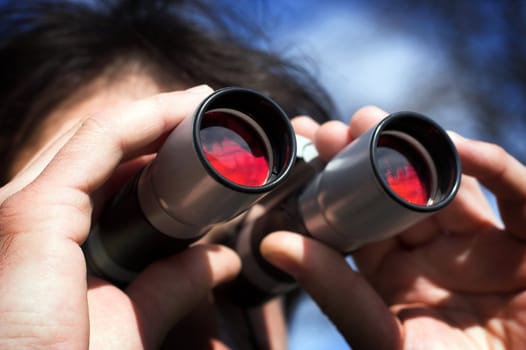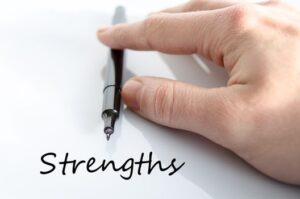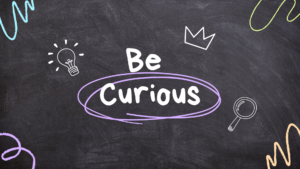“Self-observation brings man to the realization of the necessity of self-change. And in observing himself a man notices that self-observation itself brings about certain changes in his inner processes. He begins to understand that self-observation is an instrument of self-change, a means of awakening.”
― George Gurdjieff
Self-observation is an essential skill that helps you understand your thoughts, feelings, and behaviors better. It involves observing yourself objectively and analyzing your actions and reactions in different situations. Becoming a good self-observer can help you identify your strengths and weaknesses, make better decisions, and improve your overall well-being.
There are several benefits to becoming a good self-observer. Here are some examples:
Increased self-awareness: Self-observation can help you become more aware of your thoughts, emotions, and behaviors. This can lead to a deeper understanding of yourself and your motivations.
Improved emotional regulation: By observing your emotions, you can learn to regulate them in a healthier and more effective way. This can help you manage stress and improve your relationships with others.
Increased empathy: Self-observation can help you develop greater empathy for others. By understanding your own experiences, you can become more sensitive to the experiences of others and develop deeper connections with them.
Improved decision-making: By observing your thoughts and behaviors, you can identify patterns and make more informed decisions. This can help you achieve your goals and make positive changes in your life.
Increased self-acceptance: Self-observation can help you develop greater self-acceptance and self-compassion. By observing your internal experiences without judgment, you can learn to accept yourself more fully and cultivate a deeper sense of self-worth.
Improved self-control: By observing your thoughts and behaviors, you can develop greater self-control. This can help you resist impulsive behaviors and make healthier choices.
Increased self-confidence: Self-observation can help you identify your strengths and weaknesses, and develop greater self-confidence. By recognizing your successes and accomplishments, you can build a stronger sense of self-efficacy and self-assurance.
Enhanced creativity: Self-observation can stimulate your creativity and lead to new insights and ideas. By exploring your inner experiences, you can tap into your imagination and generate fresh perspectives.
Improved communication skills: By observing your own communication patterns, you can become more skilled at expressing yourself and responding to others. This can enhance your relationships with others and improve your ability to communicate effectively.
Improved problem-solving skills: By observing your own problem-solving strategies, you can develop greater insight and creativity in finding solutions to challenges. This can help you overcome obstacles and achieve your goals more effectively.
Steps to Become a Good Self-observer
Becoming a good self-observer requires practice and self-awareness. Here are some steps you can take to become better at observing yourself:
- Develop mindfulness: Mindfulness is the practice of being present and aware of your thoughts, feelings, bodily sensations, and surroundings without judgment. By developing mindfulness, you can become more aware of your internal experiences and observe them without judgment. You can practice mindfulness through meditation, breathing exercises, or simply by paying attention to the present moment.
- Write your journal: Journaling is an excellent tool for self-observation. It can help you reflect on your thoughts and feelings, identify patterns, and track your progress. You can use a journal to write down your goals, track your achievements, and explore your emotions. Writing down your experiences and observations can help you gain insights into yourself and make better decisions in the future.
- Pay attention to your body language
Your body language can reveal a lot about your thoughts and emotions. By paying attention to your body language, you can observe your reactions in different situations. For example, if you feel anxious, you may notice that you’re fidgeting or biting your nails. By observing your body language, you can become more aware of your emotions and learn to control them.
- Take breaks
Taking breaks can help you step back from a situation and observe it objectively. When you take a break, you give yourself time to reflect on your thoughts and feelings, and you can gain a fresh perspective. Taking breaks can also help you avoid burnout and improve your overall well-being.
- Ask for feedback: Ask trusted friends, family members, or coworkers for their honest feedback on your behavior, communication style, and other aspects of your personality. This can help you gain new insights into your strengths and weaknesses and identify areas for growth. Be open to constructive criticism, and use it as an opportunity for growth and self-improvement.
- Take personality tests: Taking personality tests, such as the Myers-Briggs Type Indicator or the Big Five personality traits, can help you better understand your strengths and weaknesses. This can help you observe your behavior and make changes to improve your self-awareness.
- Seek feedback: Ask trusted friends, family members, or coworkers for feedback on your behavior. This can help you gain new insights into your strengths and weaknesses and identify areas for growth.
- Use prompts: Use prompts to guide your self-observation practice. For example, you could ask yourself “How am I feeling right now?” or “What emotions am I experiencing?” This can help you tune into your internal experiences and observe them without judgment.
- Practice self-reflection: Regularly reflect on your thoughts, emotions, and behaviors. Ask yourself questions like “Why did I react that way?” or “What can I do differently next time?” This can help you observe your behavior and identify areas for growth.
- Reflect on your experiences: Regularly reflect on your experiences and how they have affected you. Ask yourself questions like “What did I learn from this experience?” or “What could I do differently next time?” This can help you develop self-awareness and improve your self-observation skills.
Traits Needed to Become a Good Self-observer
Becoming a good self-observer requires several key traits. Here are some examples:
Self-awareness: Self-awareness is the ability to recognize and understand your thoughts, feelings, and behaviors. It is the foundation of self-observation, as it allows you to notice your internal experiences.
Openness: To become a good self-observer, you need to be open to feedback and new perspectives. This means being willing to challenge your assumptions and beliefs and to consider alternative viewpoints.
Curiosity: A curious mindset is essential for self-observation. This means being interested in learning about yourself and exploring your inner experiences.
Patience: Developing self-observation skills takes time and patience. It requires a willingness to sit with uncomfortable emotions and to engage in a process of self-discovery.
Self-compassion: Self-compassion is the ability to be kind to yourself and to treat yourself with the same care and concern you would show to a friend. It is essential for self-observation, as it allows you to approach your internal experiences with a sense of curiosity and openness rather than judgment.
Emotional regulation: Emotional regulation is the ability to manage your emotions in a healthy and effective way. This allows you to observe your emotions without becoming overwhelmed by them.
Remember, becoming a good self-observer is a lifelong practice that requires ongoing effort and self-reflection. By developing these key traits, you can cultivate a deeper understanding of yourself and enhance your personal growth and development.




